Fathom the depth of Proverbs 12:10 and uncover surprising biblical insights about our moral obligations towards animals.

A Bible Verse About Animals
Have you ever considered what the Bible says about animals?
It's interesting to note that even in biblical times, animals held significant roles and symbolic meanings. Take for instance, Proverbs 12:10, 'A righteous man cares for the needs of his animal.'
This verse not only acknowledges the importance of animals but also highlights the moral obligation we have towards them.
Intriguing, isn't it?
Let's delve deeper into this verse, its historical context, interpretation, and the lessons we can draw from it today.
Key Takeaways
- The Bible verse Proverbs 12:10 emphasizes the importance of caring for animals, reflecting God's concern for his creation.
- Animals in the Bible carry both literal and symbolic meanings, providing insight into virtues and vices.
- Studying biblical animal symbolism deepens the understanding of the text and offers moral and ethical guidance.
- Animal symbols from the Bible, like the lion or serpent, remain relevant today, inspiring introspection, moral refinement, and spiritual growth.
The Verse Explored
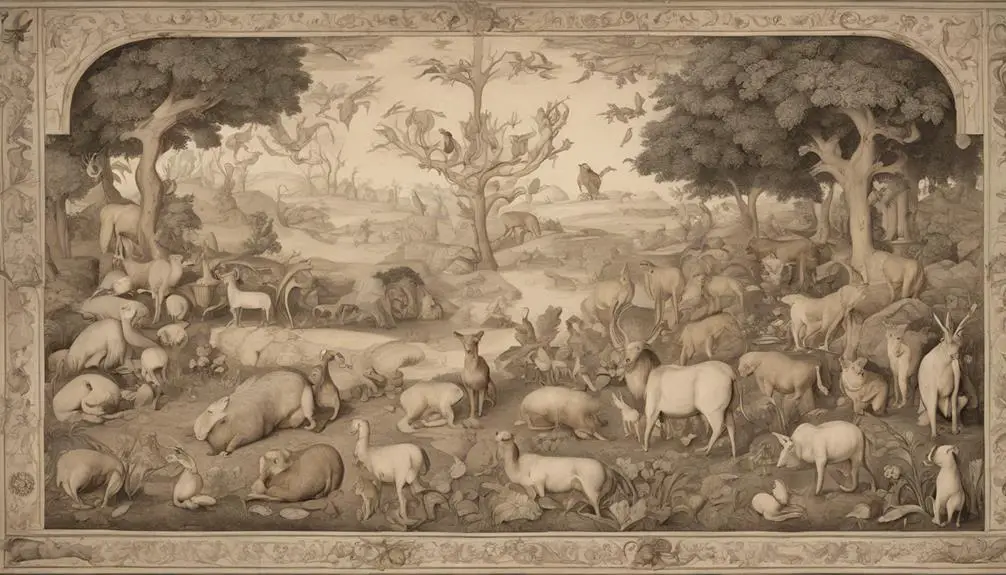
In exploring this Bible verse about animals, you'll uncover a deeper understanding of its theological implications and practical applications. You'll notice that the scripture often uses animals to illustrate spiritual truths. Notably, in the book of Proverbs, animals exemplify wisdom and folly, while in the Gospels, Jesus employs animal imagery to convey spiritual principles.
Examining the theological implications, you'll find that the biblical view of animals is fundamentally different from modern perspectives. In Genesis, humans are given dominion over animals, indicating a hierarchy of creation that places humans above animals. Yet, this doesn't sanction cruelty or neglect. Proverbs 12:10 underscores this by stating 'A righteous man cares for the needs of his animal.'
Practically, this verse encourages responsible stewardship and compassionate treatment of animals. You'll discern that the Bible's teachings on animals have implications for how you interact with the natural world. It calls you to respect and care for animals, not out of a sense of animal rights, but because such care reflects God's own concern for His creation.
Thus, in studying this verse about animals, you'll gain a richer understanding of biblical teachings and their application in daily life.
Historical Context
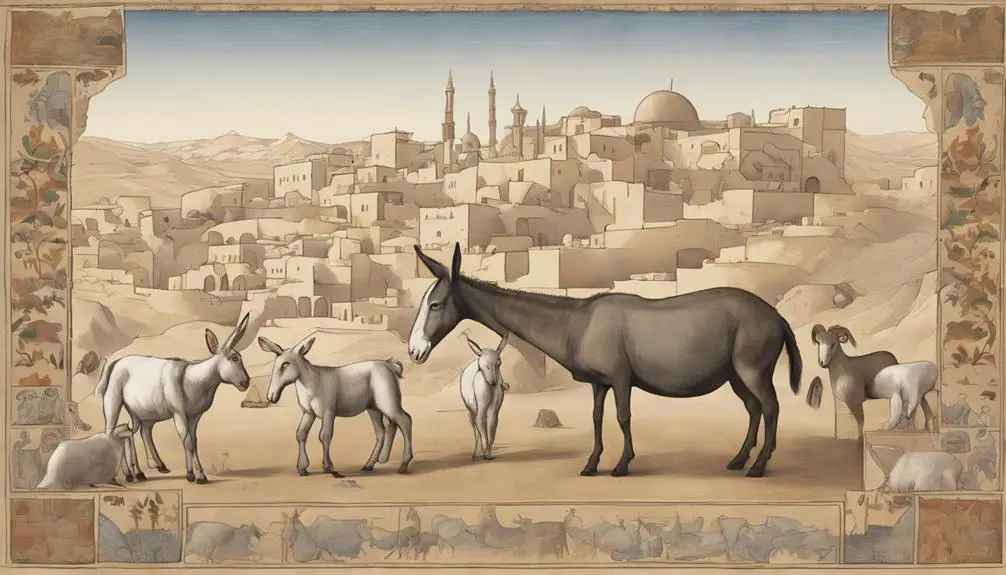
To fully grasp the meaning of these verses about animals, you'll need to appreciate the historical setting in which they were written. Remember, the Bible wasn't written in a vacuum. It was composed over centuries, by various authors, in a multitude of cultural and historical contexts. These contexts shaped the nature of the texts and the meanings they convey.
In the times of the Old Testament, animals were integral to survival and society. They were sources of food, labor, transportation, and even companionship. They were also used in religious rituals, sacrifices, and as symbols in prophetic visions.
In the New Testament era, under Roman rule, the role of animals shifted somewhat. They were still used in daily life and agriculture, but the sacrificial system was less prevalent. Additionally, animals began to take on metaphorical roles in parables and teachings.
Understanding these historical contexts can help you better understand the depth and nuances of the Bible verses about animals. It's crucial to remember that the Bible is a product of its time, and its messages are often tied to the realities of the societies in which it was written.
Interpretation and Meaning
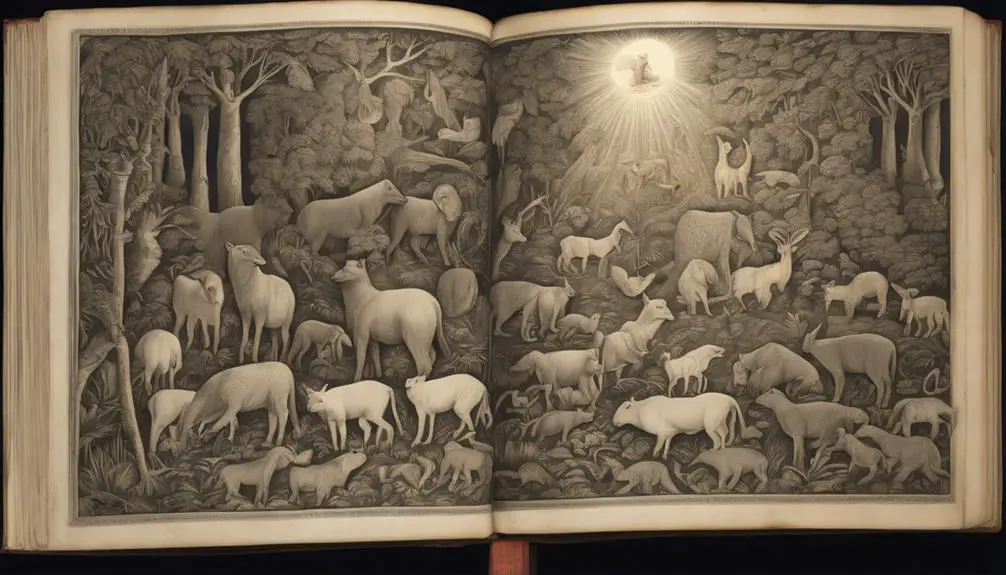
Diving into the interpretation and meaning of biblical verses about animals, you'll find a fascinating amalgamation of symbolism, metaphor, and literal interpretation. These elements combined bring the text to life, adding depth and complexity to its seemingly simple accounts.
Let's break down the interpretation with a table to create imagery in your mind:
Animal |
Literal Meaning |
Symbolic Interpretation |
|---|---|---|
Lamb |
A young sheep |
Innocence, purity |
Lion |
A big cat |
Strength, courage |
Dove |
A small pigeon |
Peace, Holy Spirit |
Serpent |
A large snake |
Deception, sin |
Eagle |
A large bird of prey |
Freedom, divine protection |
In understanding these symbols, it's vital to consider the cultural and historical context of the time when the Bible was written. Animals held different significance then. Furthermore, the interpretation can vary based on the specific book or verse in question. For example, while the serpent typically symbolizes sin, it's also used as a symbol of wisdom in some contexts. Therefore, careful study and reflection are necessary to fully grasp the depth of these biblical animal references.
Significance in Modern Times
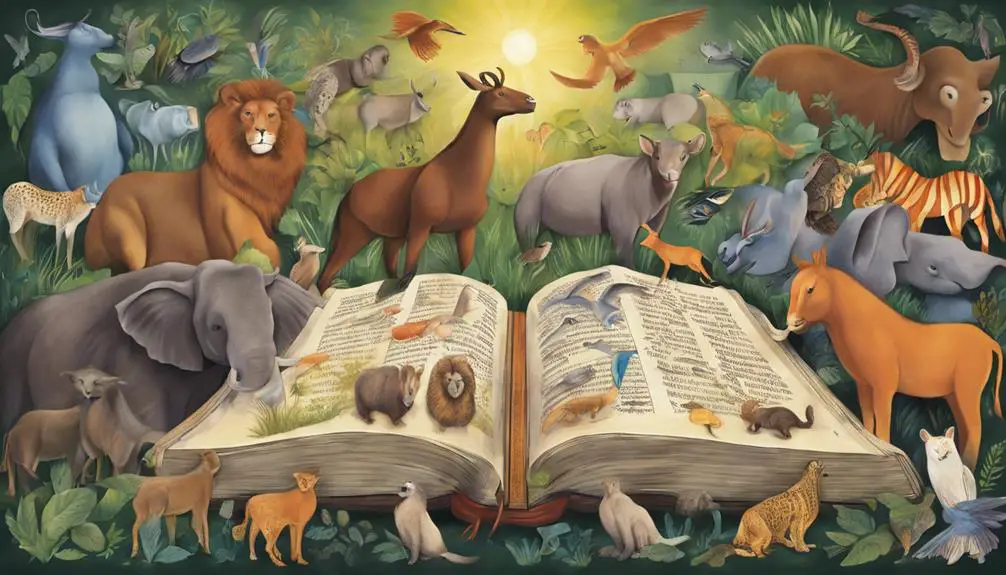
While the biblical interpretations of animals offer a profound understanding of ancient texts, you might wonder how this symbolism retains relevance in our modern world. The answer lies in the timeless values these symbols represent, which continue to resonate in contemporary society.
Animals in the Bible serve as metaphors for virtues and vices, encapsulating life lessons that transcend time and geography. They're not only historical or cultural artifacts but also powerful tools to communicate moral and ethical teachings. For instance, the lion symbolizes courage and strength, traits you'd associate with leadership even today. Similarly, the serpent often represents deceit, warning us of the dangers of dishonesty in personal and professional relationships.
Moreover, these symbols also provide a unique lens to examine our relationship with nature. They remind us of our responsibilities as stewards of the Earth, a concept that's more pertinent now than ever, given the current environmental crisis.
Therefore, while the Bible's animal symbolism might seem archaic at a first glance, its significance is far from obsolete. By providing moral guidance and environmental consciousness, these biblical interpretations continue to influence and shape our modern world.
Spiritual Lessons Derived
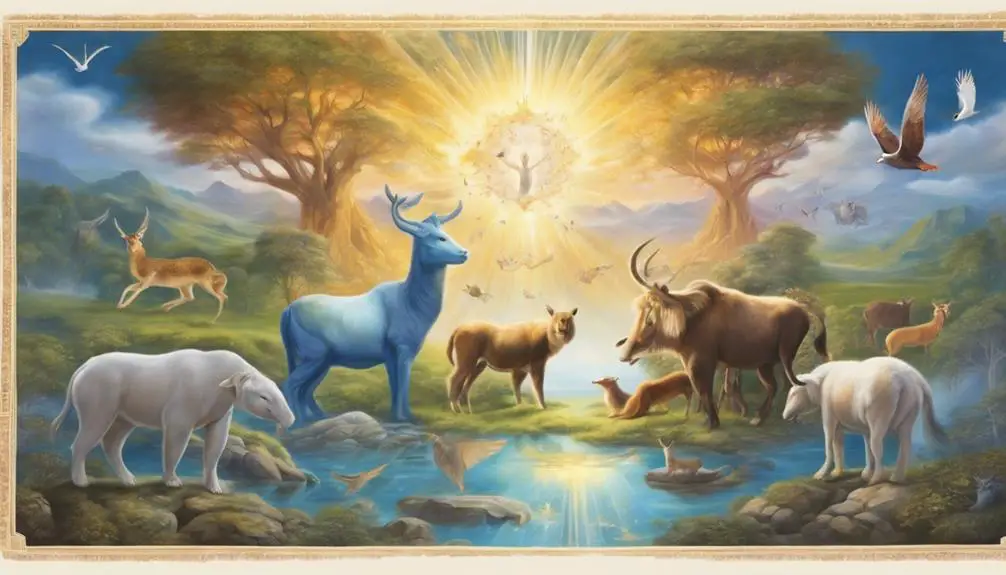
Through the lens of animal symbolism in the Bible, you're invited to embark on a journey of spiritual self-discovery, gaining insights into virtues and vices that can guide your moral compass. For instance, consider the lamb's representation of innocence and humility. When you emulate these qualities, you're adopting the essence of Christ's spirit, who's often referred to as the 'Lamb of God'.
However, the Bible also presents animals as cautionary symbols. The serpent, for example, symbolizes cunning and deceit, traits that led to mankind's fall in Eden. By recognizing these negative traits within yourself, you're empowered to resist temptation and foster spiritual growth.
Meanwhile, the dove represents peace and the Holy Spirit, reminding you of the divine presence in your life. It invites you to cultivate inner tranquility, even amidst life's storms.
Each animal described in these verses serves as an emblem, teaching you lessons about human nature and spiritual transcendence. They challenge you to introspect, to identify your virtues and vices, and to strive towards moral refinement. By interpreting these animal symbols, you're not only gaining biblical knowledge but also a deeper understanding of your spiritual self.
Conclusion
In conclusion, scripture such as Proverbs 12:10, which emphasizes kindness toward animals, has held historical and spiritual significance. It's interpretation continues to inspire respect for all God's creatures today. The verse reminds us of our responsibility to show compassion, a lesson that's timeless.
Thus, this biblical passage doesn't just reflect ancient wisdom, but also serves as a moral compass for modern society, urging us to treat all living beings with kindness.

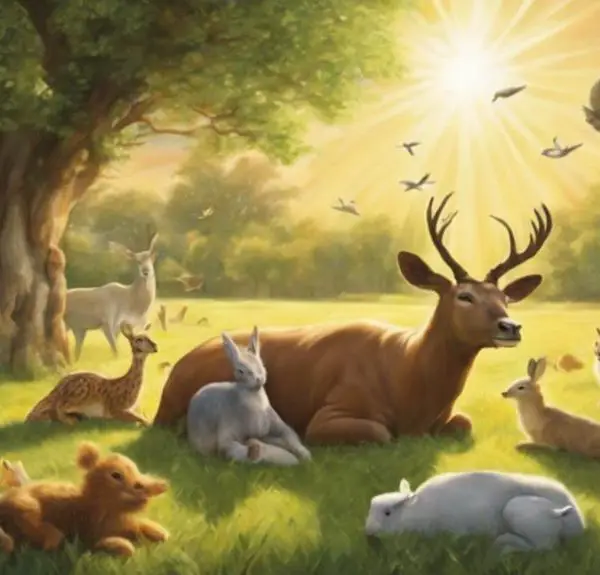

Sign up